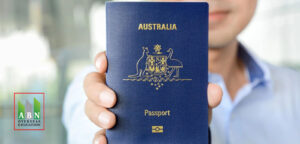Many Pakistani students who want to travel or work overseas may find the term “IELTS” scary or foreign. However, understanding what the IELTS course involves and its significance might cover the path to success in reaching academic and employment goals overseas.
The IELTS Course: What Is It?
The International English Language Testing System (IELTS) is a uniform test to measure non-native English speakers’ language skills. It assesses a candidate’s proficiency in all four language domains—speaking, reading, writing, and listening—in English.
The IELTS exam is a vital first step for Pakistani students who do not speak English as their first language when trying to get into foreign universities, apply for a visa, or find work in English-speaking nations like the UK, Australia, Canada, and New Zealand.
How long does the IELTS course last?
The length of the IELTS course might change based on several variables, such as the student’s goal score and present level of English proficiency. The average time for candidates to prepare for the IELTS exam is several weeks to many months.
Numerous educational institutions and language schools in Pakistan provide IELTS preparation classes specifically designed to meet the requirements of prospective test-takers. These courses are intended to improve language proficiency, acquaint students with the exam format, and offer tips and techniques for successfully completing each test component.
IELTS course modules include:
Listening: The candidate’s comprehension of spoken English in a variety of settings, including talks, lectures, and presentations, is evaluated in the listening module. Examinees hear recordings and respond to questions using the information they hear.
Reading: The Reading module uses excerpts from novels, newspapers, periodicals, and scholarly journals to assess the candidate’s understanding of reading. Test-takers must read the sections and provide answers to show that they grasp the material.
Writing: There are two assignments in the writing module. Candidates must use their own words to express visual information, such as graphs, charts, or diagrams, in Task 1. Writing an essay in response to a prompt in Task 2 entails expressing and defending a viewpoint or point of contention.
Speaking: The Speaking module evaluates the candidate’s English-language oral communication skills. It consists of an in-person interview with an examiner when candidates answer questions, talk about familiar topics, and have a structured conversation.
Using the IELTS Curriculum:
For Pakistani students, there are several reasons to take the IELTS course:
Study Abroad
Many English-speaking universities and colleges require overseas applicants to prove their English language skills by taking the IELTS exam as part of the admissions process. Reaching a target IELTS score makes it possible to pursue undergraduate, graduate, and research options in addition to other higher education programs overseas.
Work Opportunities
The IELTS exam is accepted globally by many employers and professional associations and is used for academic purposes. When applying for jobs overseas, Pakistani students may be required to submit their IELTS results, especially in fields like healthcare, engineering, finance, and hospitality, where good English communication skills are crucial.
Immigration and Visa Applications
The IELTS exam is frequently required of Pakistanis who are thinking about immigrating to English-speaking nations or who are applying for visas. IELTS results are used by immigration authorities to evaluate a person’s English language competency and determine their eligibility for several visa categories, such as skilled migration, study, employment, and permanent resident visas.
In conclusion, Pakistani students who want to pursue academic and professional possibilities overseas would find great value in the IELTS training. Students can demonstrate their English language skills, meet entrance requirements, improve their employability, and eventually set off on a fulfilling foreign trip by preparing extensively and passing the IELTS exam.
This article seeks to provide a thorough knowledge of the test for Pakistani students who might need to be made aware of the importance of the IELTS course.
Here are two types of IELTS exams:
- IELTS Academic: For higher education and professional registration.
- IELTS General Training: For migration, work, or training purposes.
Both assess four language skills: listening, reading, writing, and speaking, but the content differs slightly based on the exam type and its intended purpose.
To book the IELTS (International English Language Testing System) exam in Pakistan, you typically follow these steps:
- Find an authorized IELTS test centre in Pakistan.
- Check the available test dates and times.
- Register online and pay the exam fee.
- Receive a confirmation email with test details.
- Prepare for the exam using study materials.
- Attend the exam on the scheduled date.
- You typically receive your scores within 13 days.
That should cover the essential steps for booking the IELTS exam in Pakistan.





















